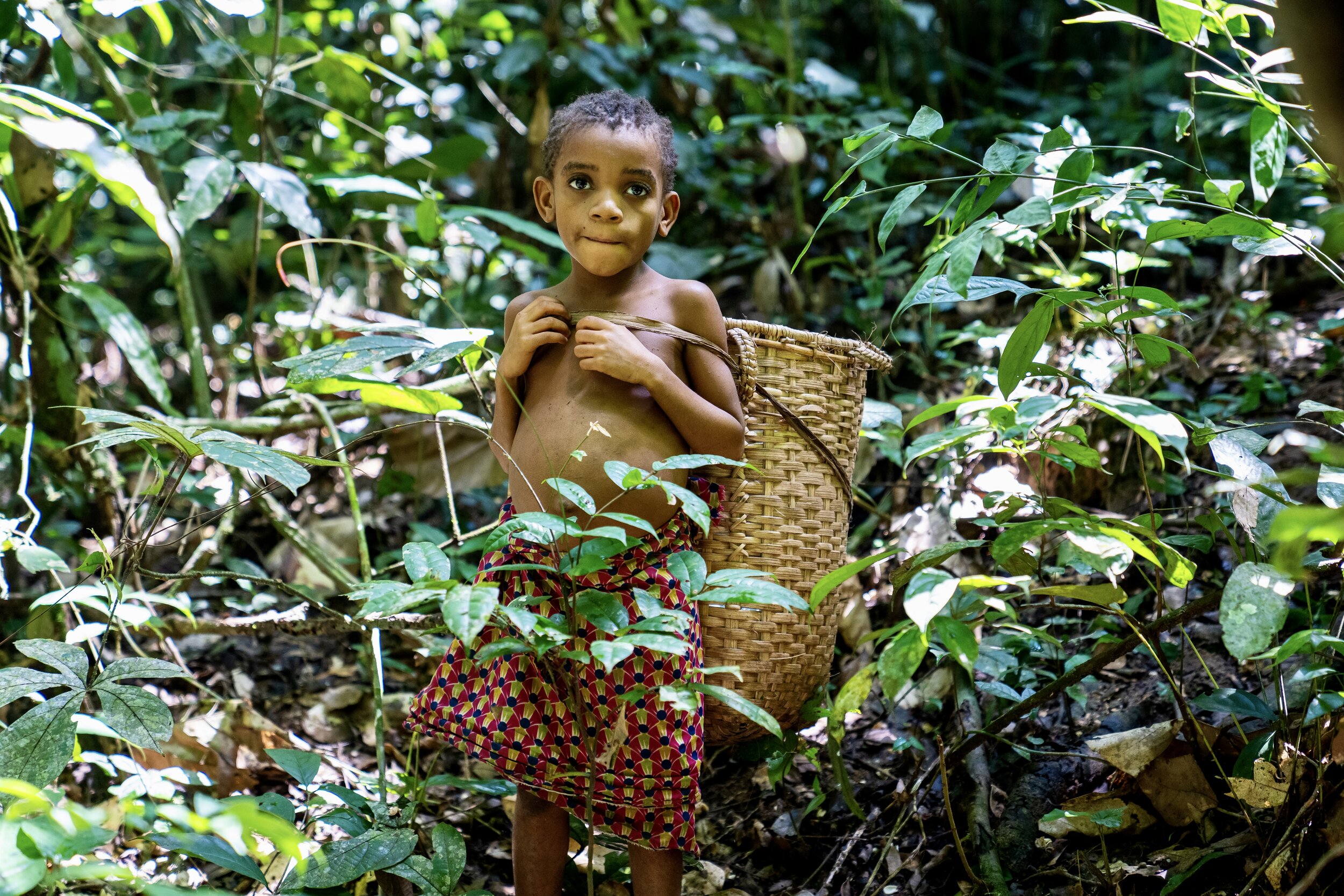
MBUTI: THE PEOPLE OF CONGO’S ITURI RAINFOREST
Living with the Mbuti Pygmies in the Rainforests of Northeast Congo
ITURI, CONGO-KINSHASA
He is Shaban, the chief of the Mangubo family, with whom we will be staying. Everyone calls him Mangasé. He cannot be taller than 4”7. The Mbuti pygmies are known to be the smallest ethnic group in the world.
Shaban leads the charge into the forest. Mangasé must always be at the lead of the pack. The forest is moist and humid but cool and dark at the same time. Only small rays of sunlight edge their way onto the forest floor. There are fallen fruits everywhere along the way; some look like mini squash, where others look like forest apples. The occasional butterfly or honeybee floats whimsically across our path.
The Mbuti are nomadic hunter-gatherers from Congo’s Ituri Rainforest who move to a different settlement every two to four weeks. They hunt and deplete an area and must move on to continue surviving. They are among the oldest indigenous groups within the DRC. There are an estimated 40,000 Mbuti pygmies in DRC, according to researchers.
They have avoided external pressures to abandon their traditional practices and integrate into modern society, but their way of life is continuously at risk. The Mbuti have no legal protection over their territory, and their food supply is threatened by deforestation, mining, forest conservation and civil unrest. But yet they persist, living the much way their ancestors have in the jungle.
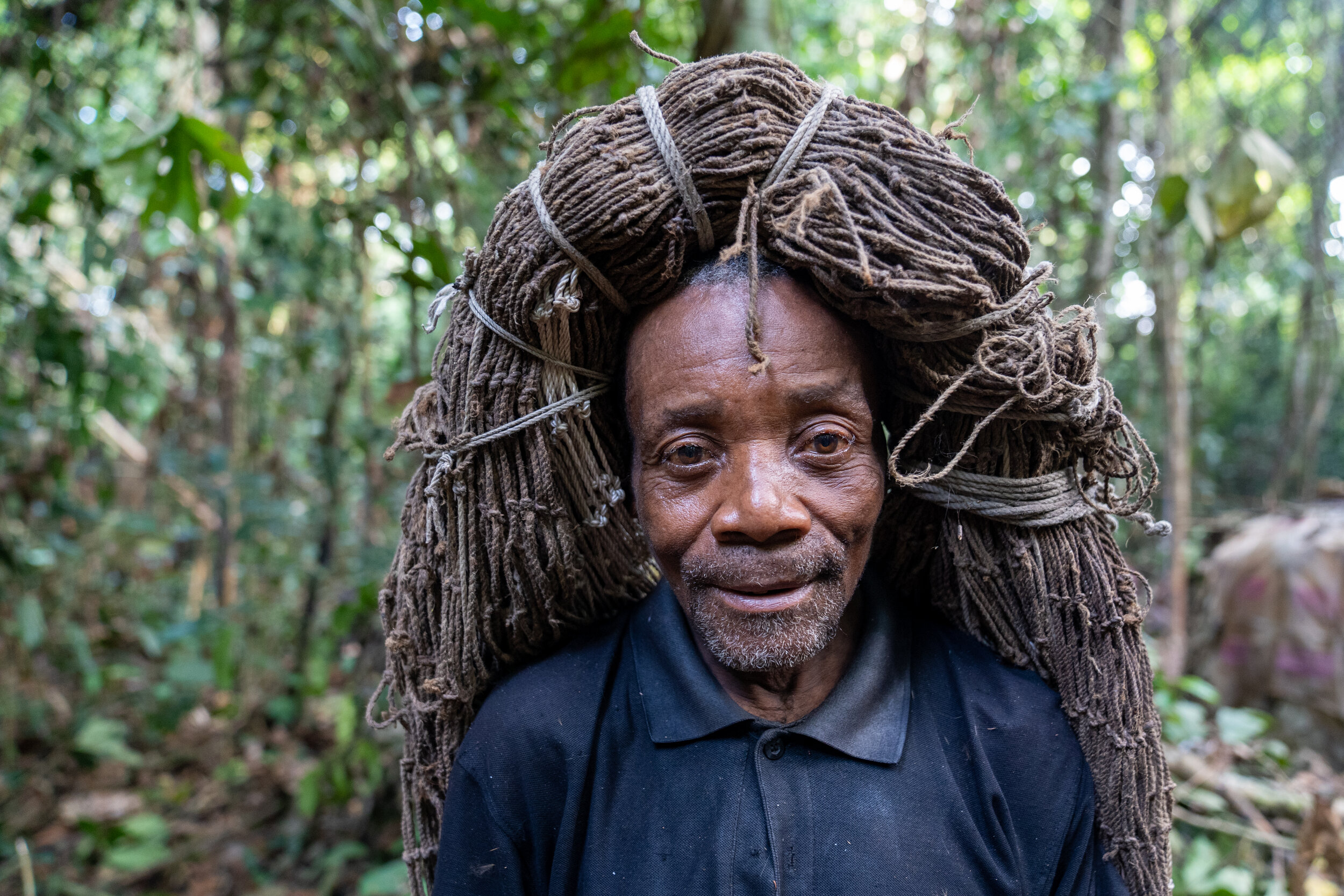
The Chief Leads Net Hunting
Ituri, Democratic Republic of the Congo. June 2021.
Shaban is the chief of the Mangubo family. Everyone calls him Mangase. He inherited the title through patrilineality. If he dies, his younger brother will take on the role. For any activity, he is always at the lead of the pack. Despite his leadership role, the group will collectively make decisions as one cooperative unit.
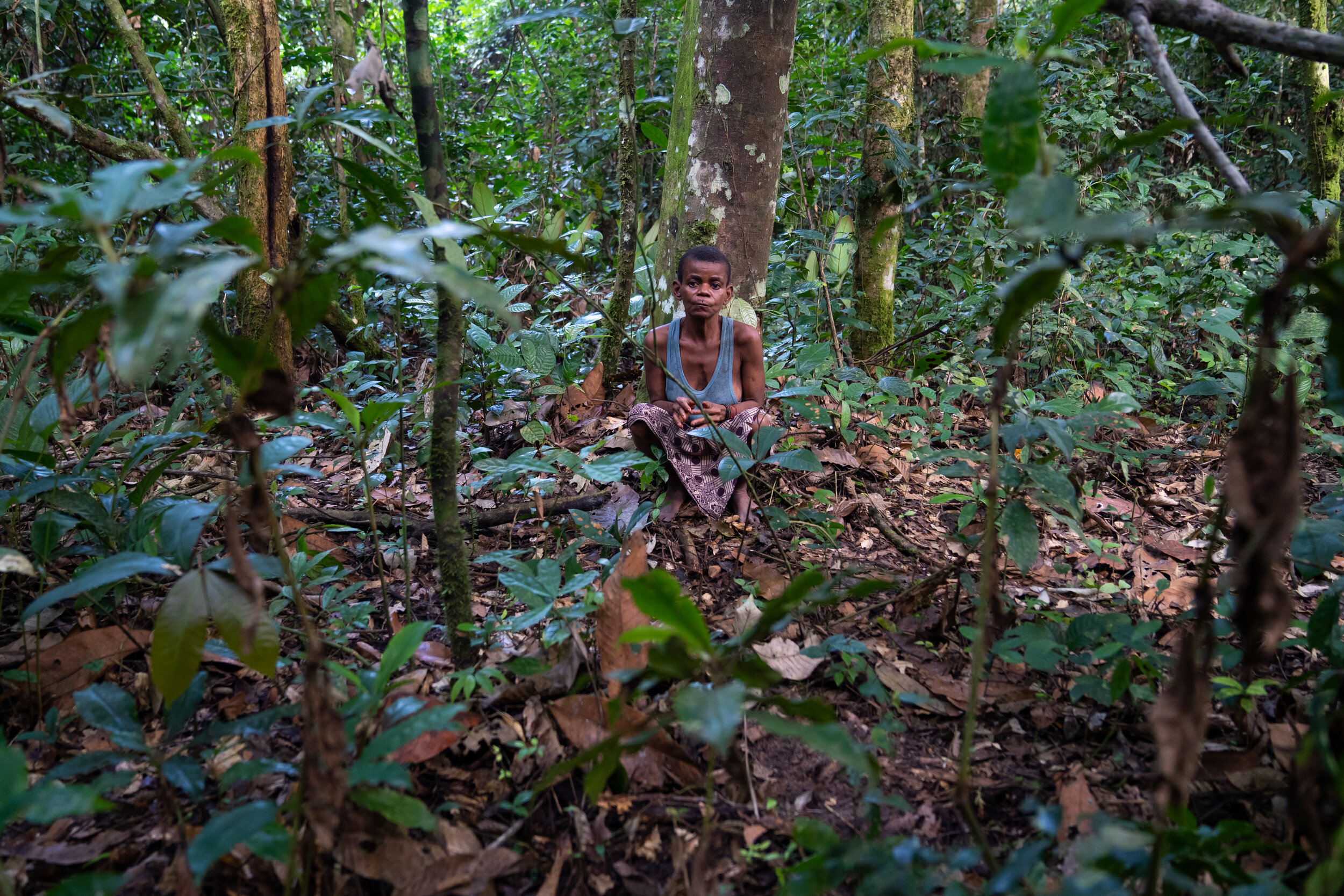
Alone in the Forest
Ituri, Democratic Republic of the Congo. June 2021.
Women are actively involved with group hunting. They will work with each other to scare animals into nets.
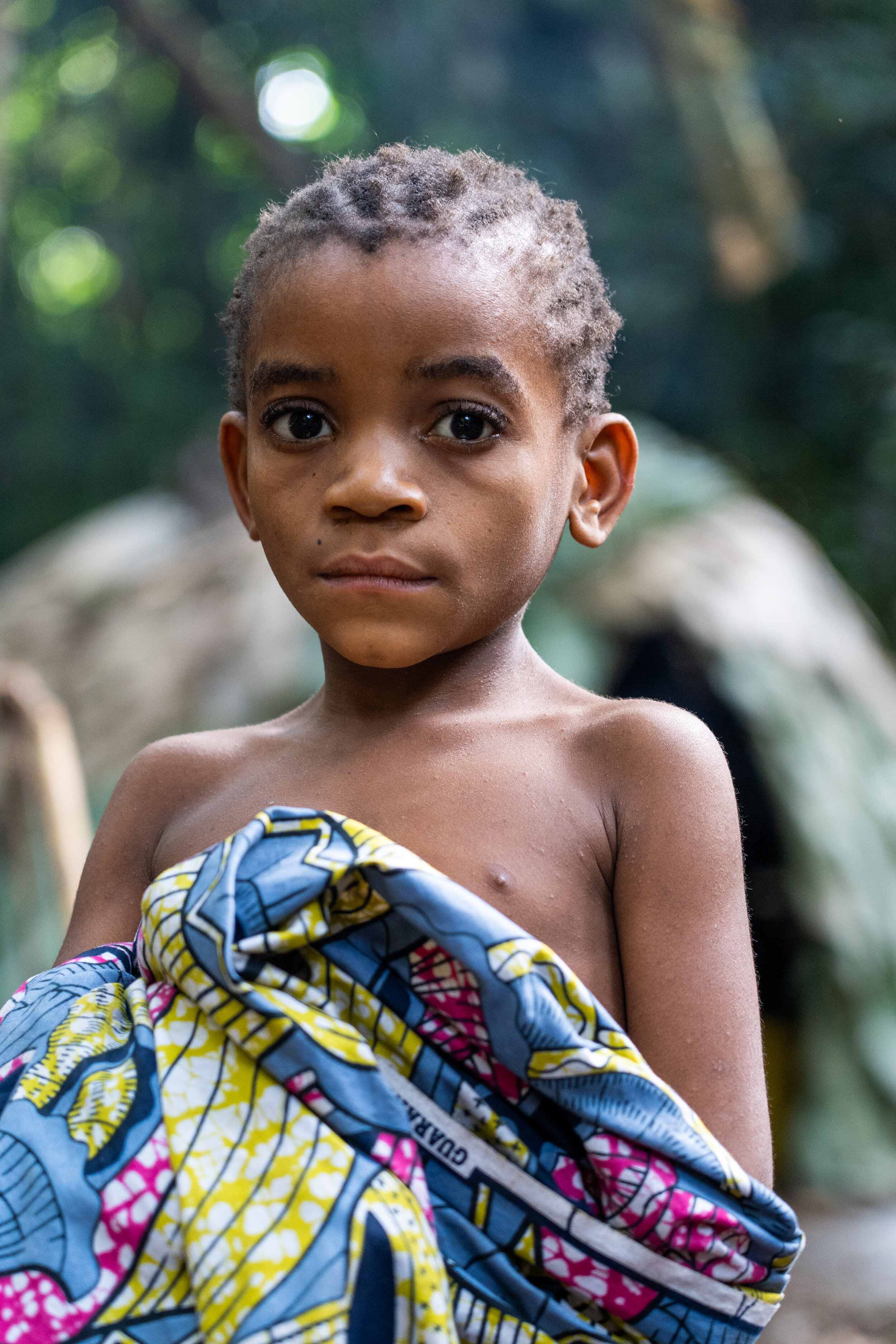
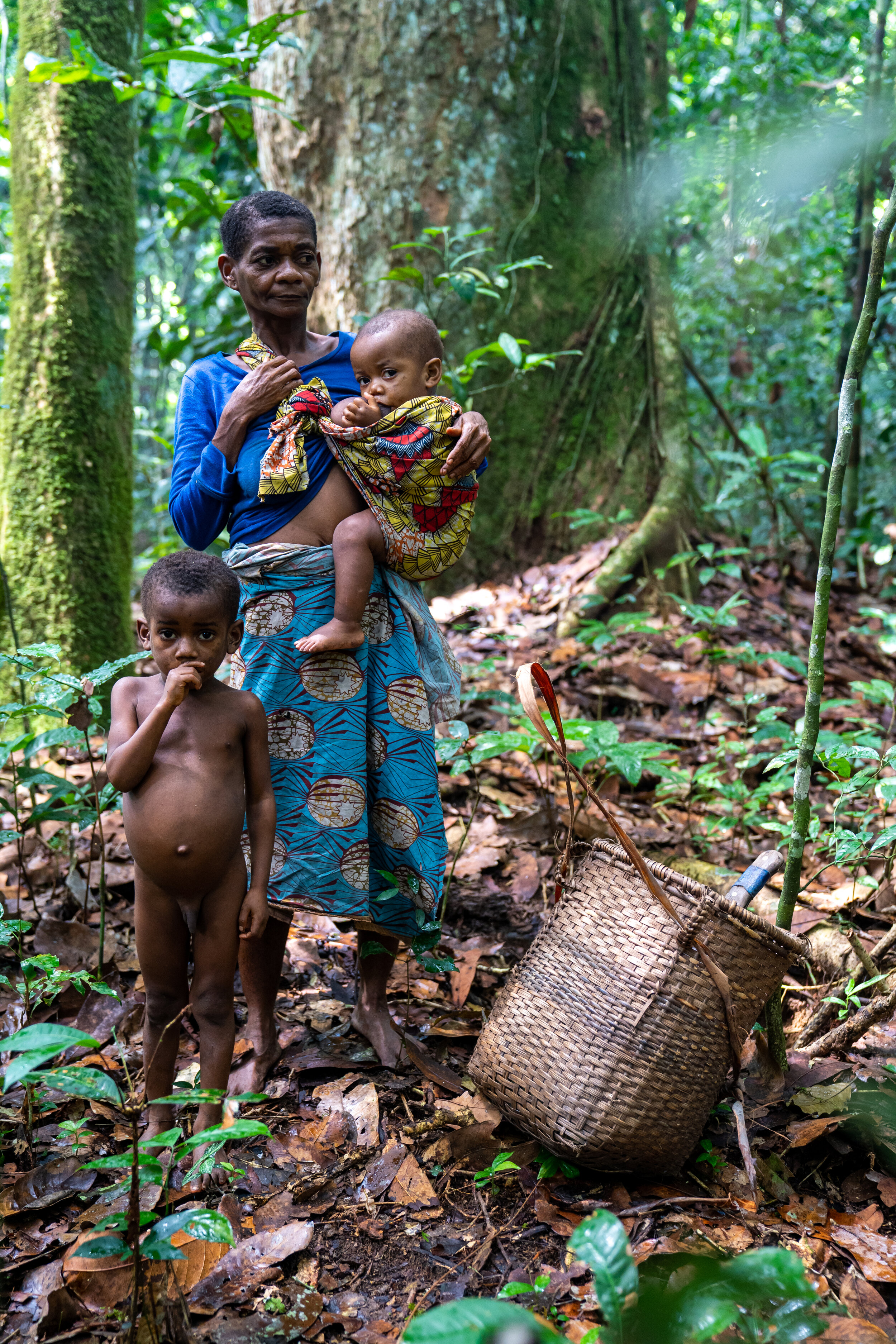
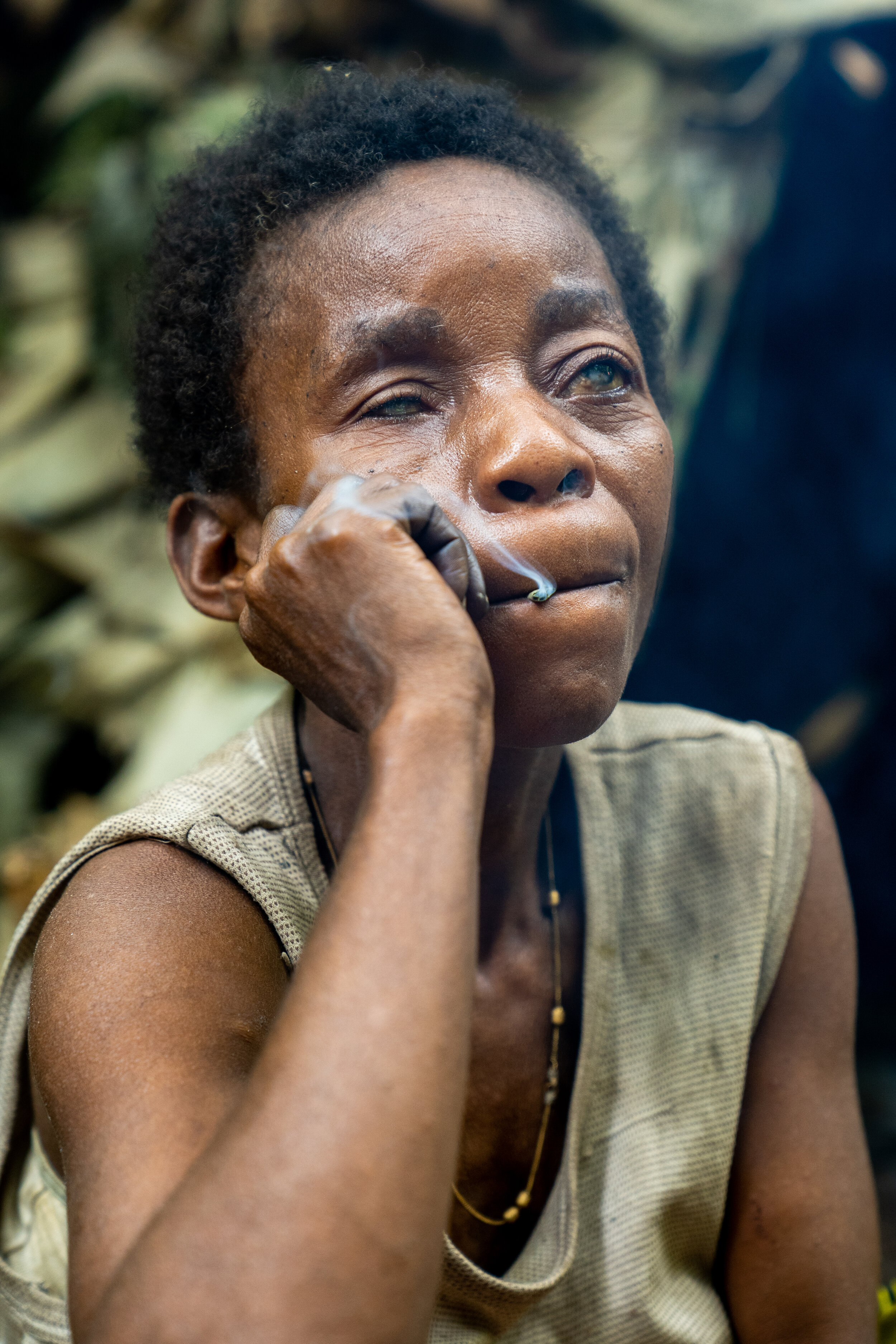
Mbuti Women
Ituri, Democratic Republic of the Congo. June 2021.
A majority of the 32-member community are women. Women actively keep the community together and have equal say in making collective decisions. Beyond hunting, they are also responsible for foraging, cooking, raising children, and building homes.
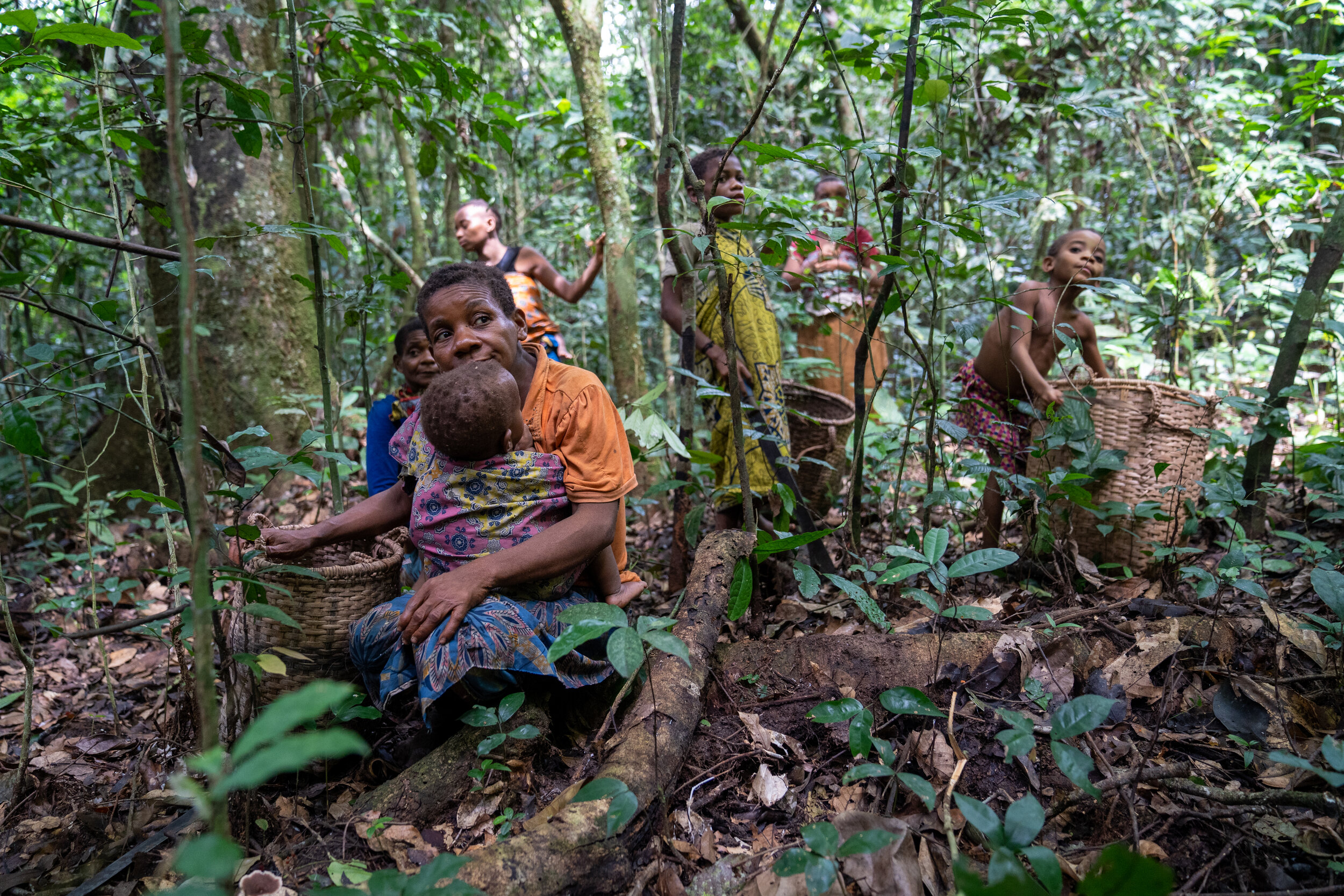
Women’s Gathering
Ituri, Democratic Republic of the Congo. June 2021.
Women and children will carry baskets into the forest for hunting catches, honey, and foraged leaves.
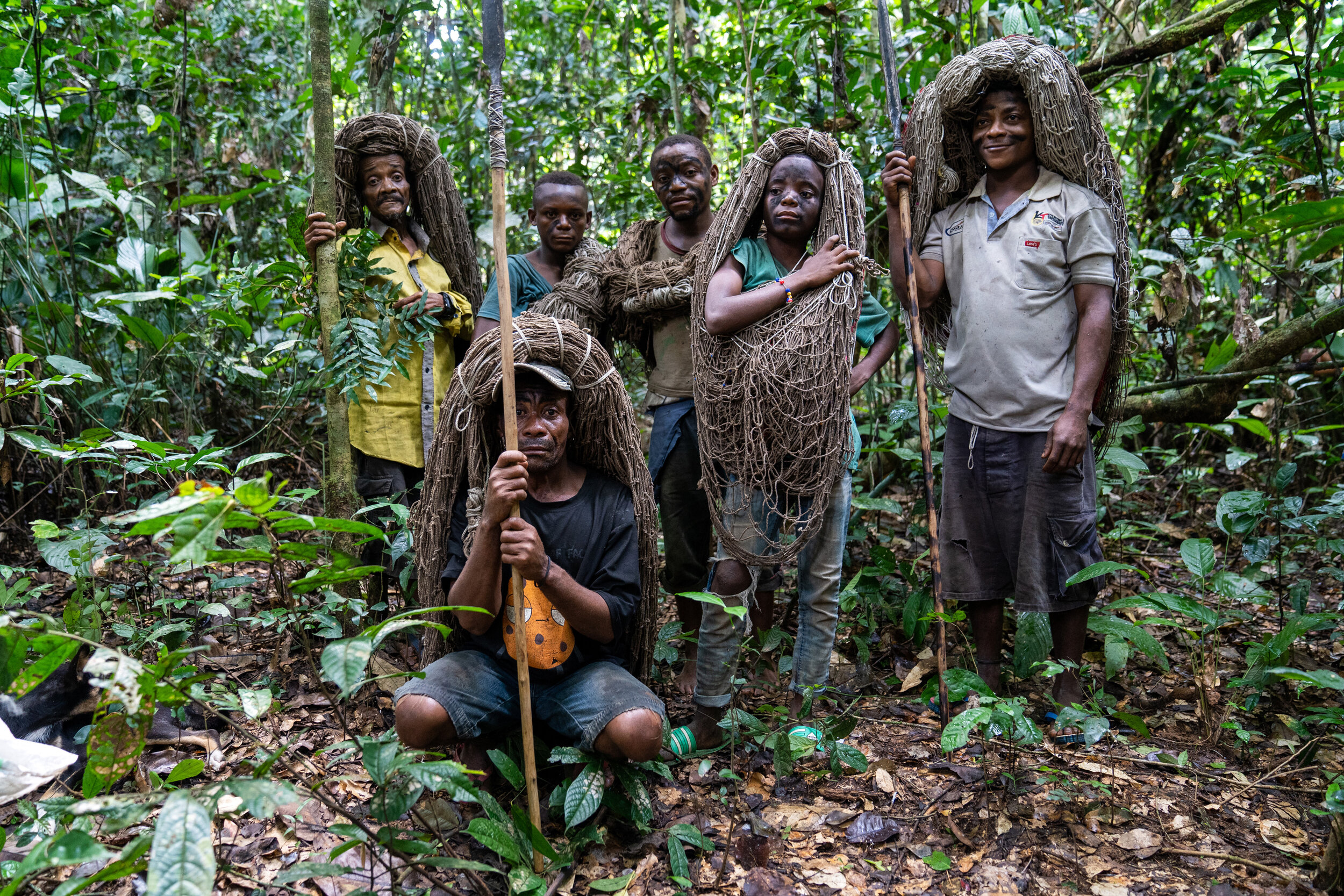
The Net Hunters
Ituri, Democratic Republic of the Congo. June 2021.
The men of the family hunt in a pack of five with spears, bows and arrows, and long nets which they carry on their heads or over their shoulders. After planning where they will hunt, they work collectively to uncoil and set up long 20 feet long nets on branches.
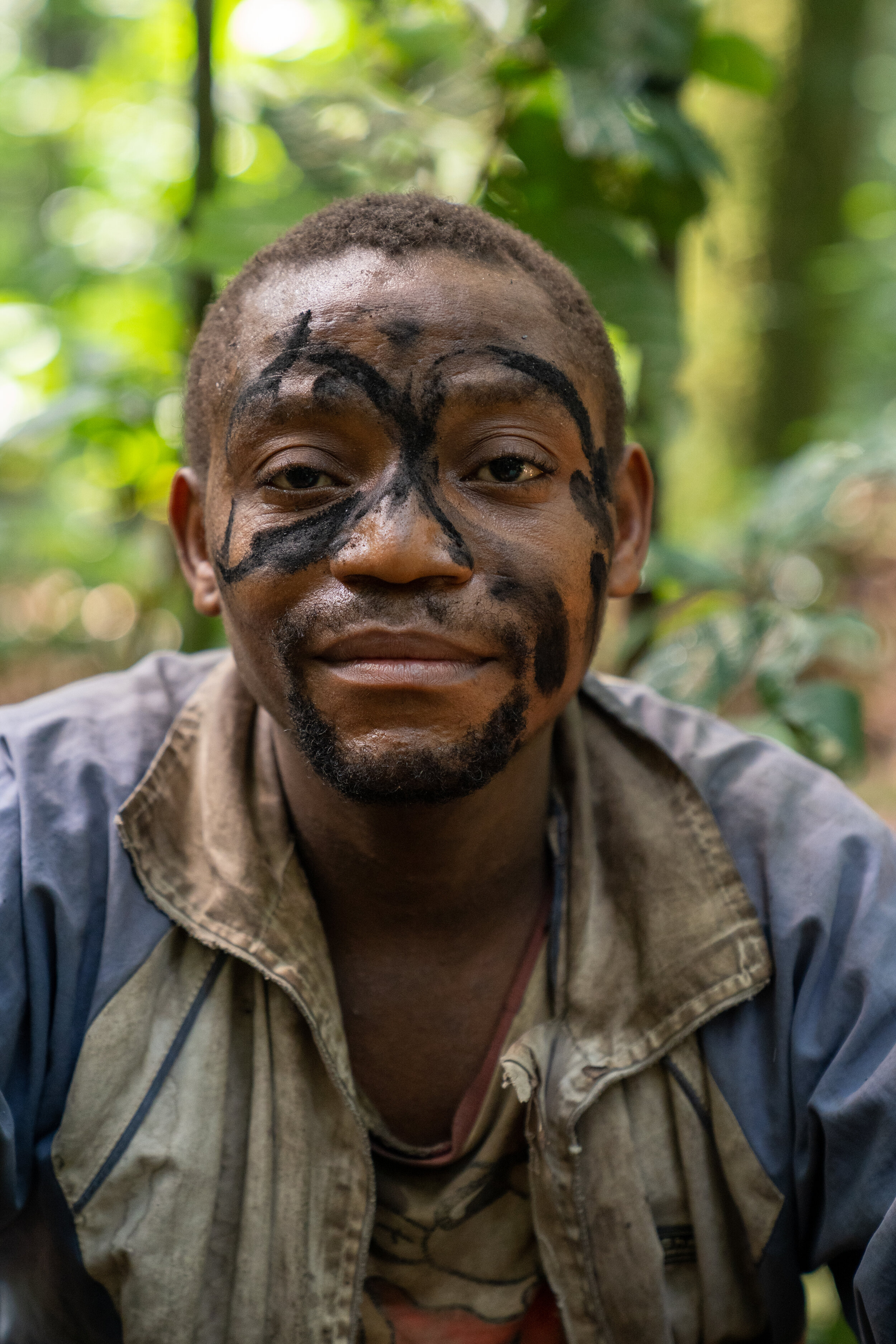
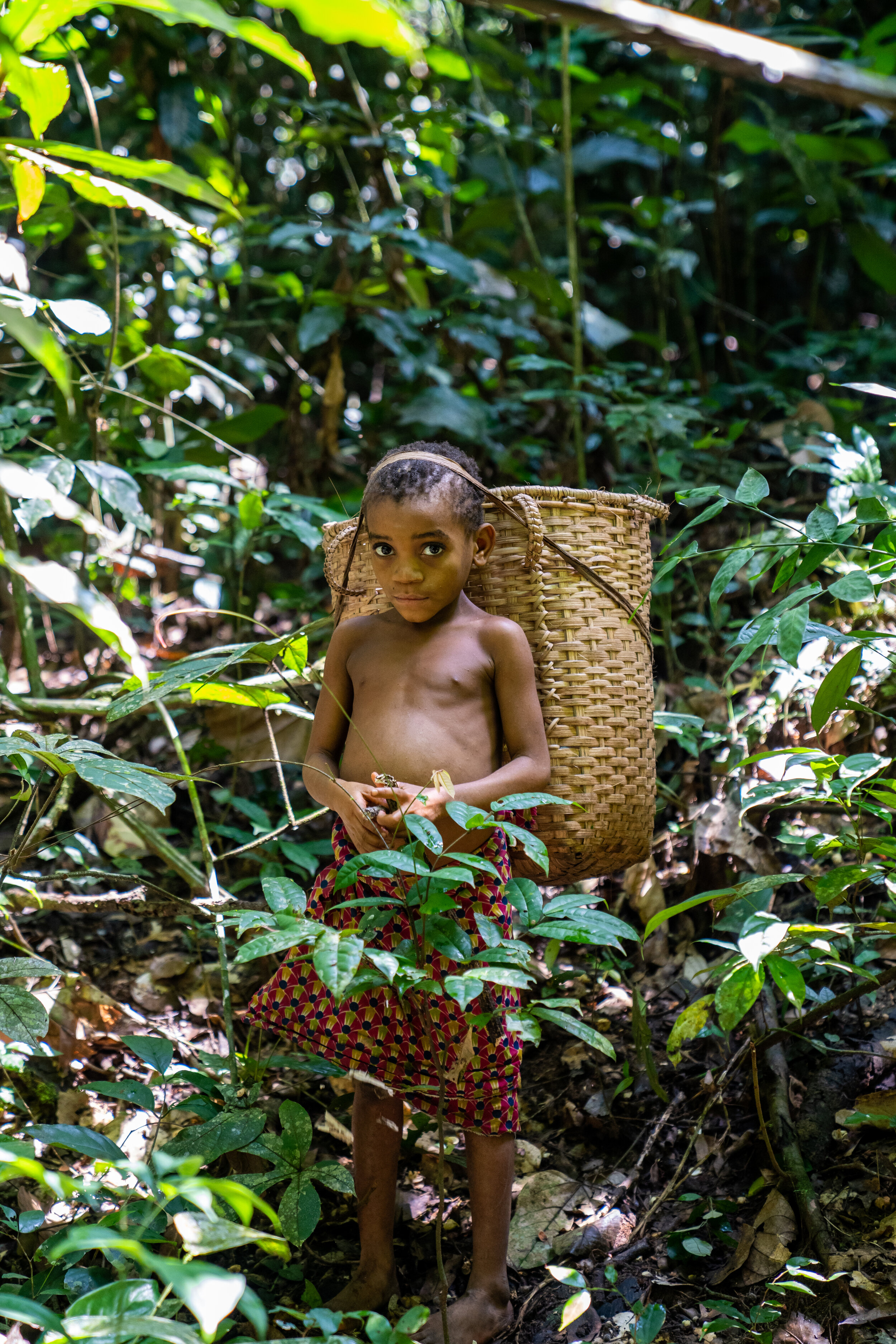
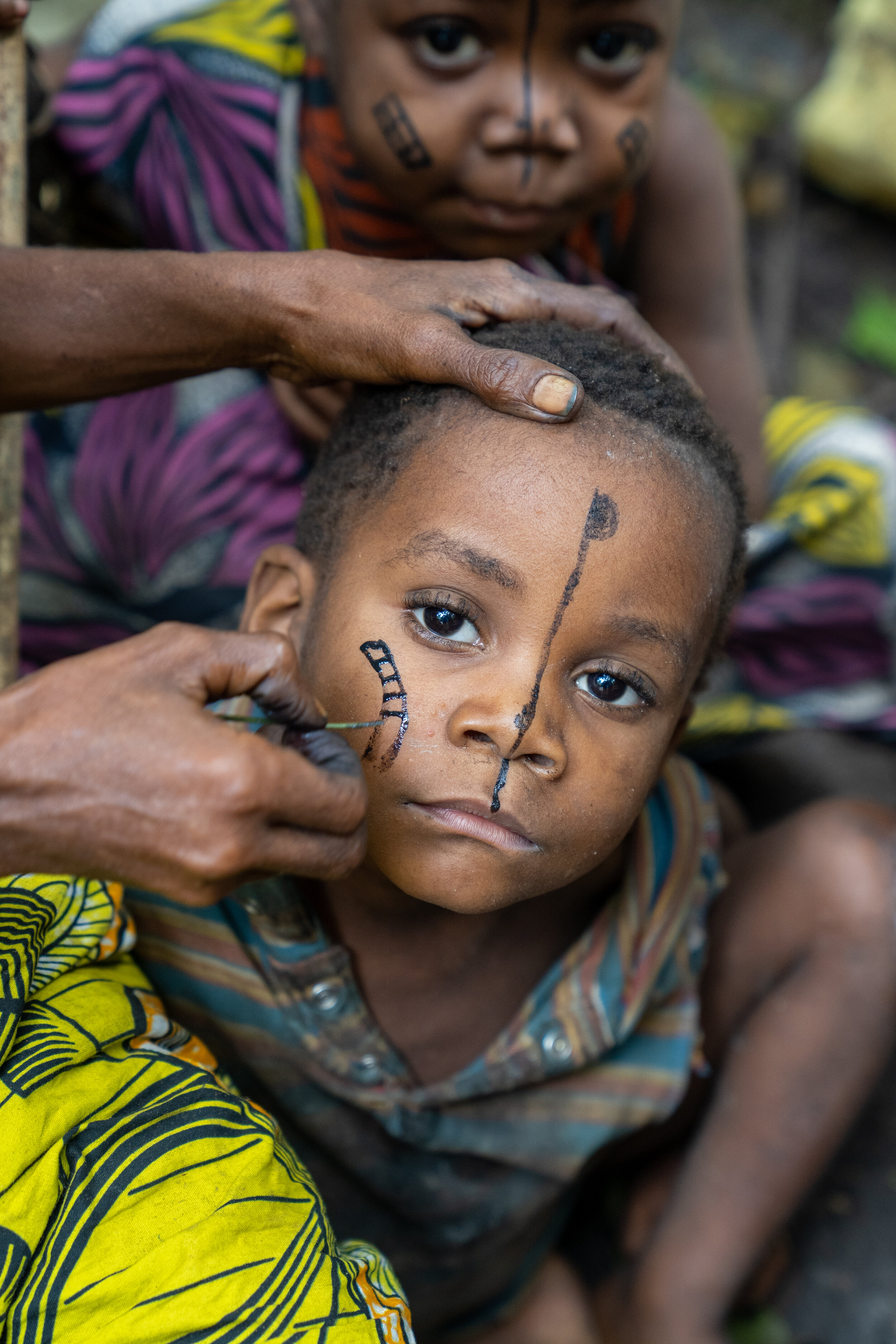
Mbuti Portraits
Ituri, Democratic Republic of the Congo. June 2021.
Faces of different family members. A Mbuti hunter spreads ashes on his face before a hunt to create a camouflage effect. A child carries a basket into the forest to help collect leaves, fruits, and flowers. A mother paints her child’s face using a mixture of charcoal and sticky fruit.
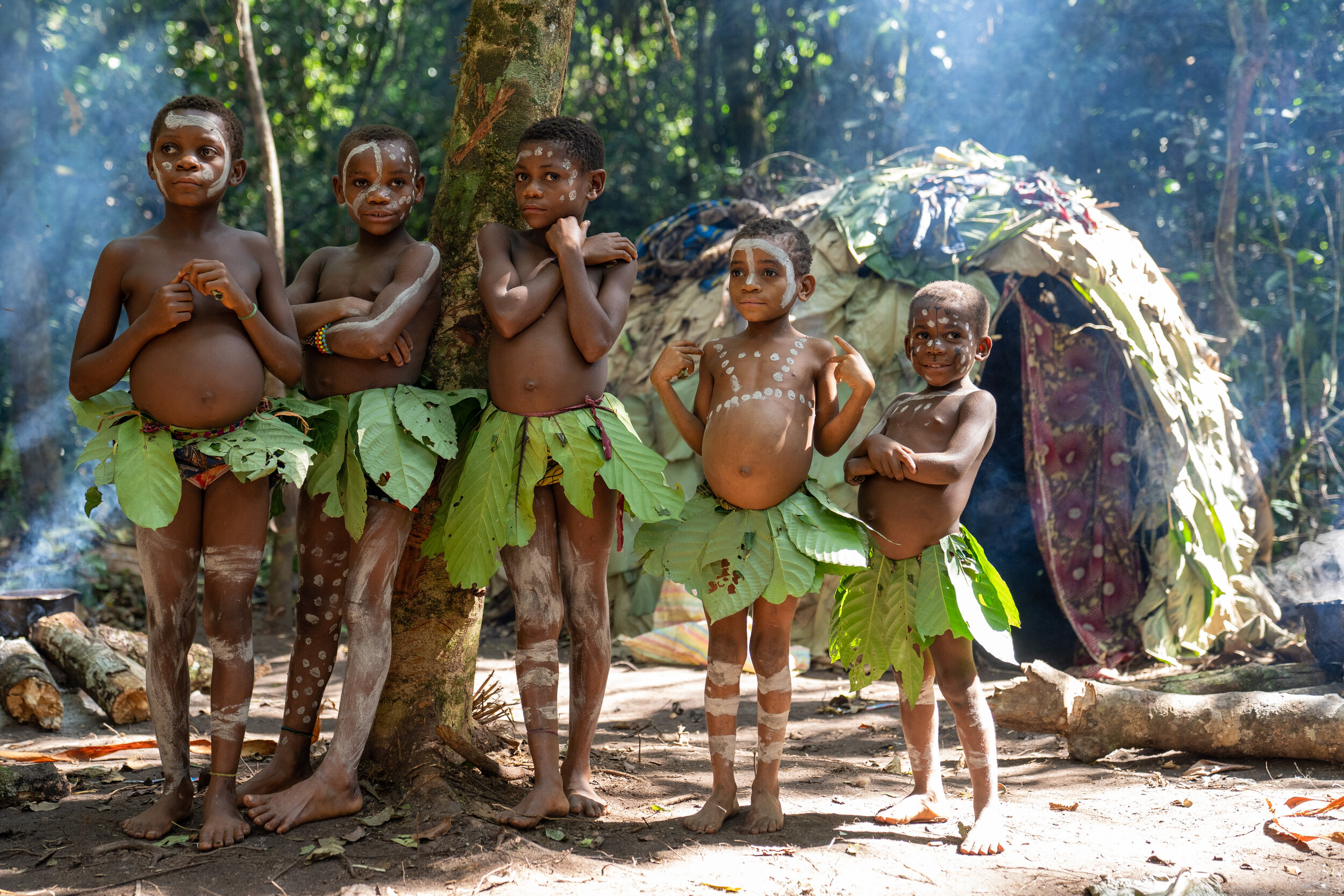
Traditional Dance
Ituri, Democratic Republic of the Congo. June 2021.
The Mbuti love to sing and dance to awaken the forest. Here, the children dance in freshly plucked palm frond leaves and traditional paint just inside the camp.
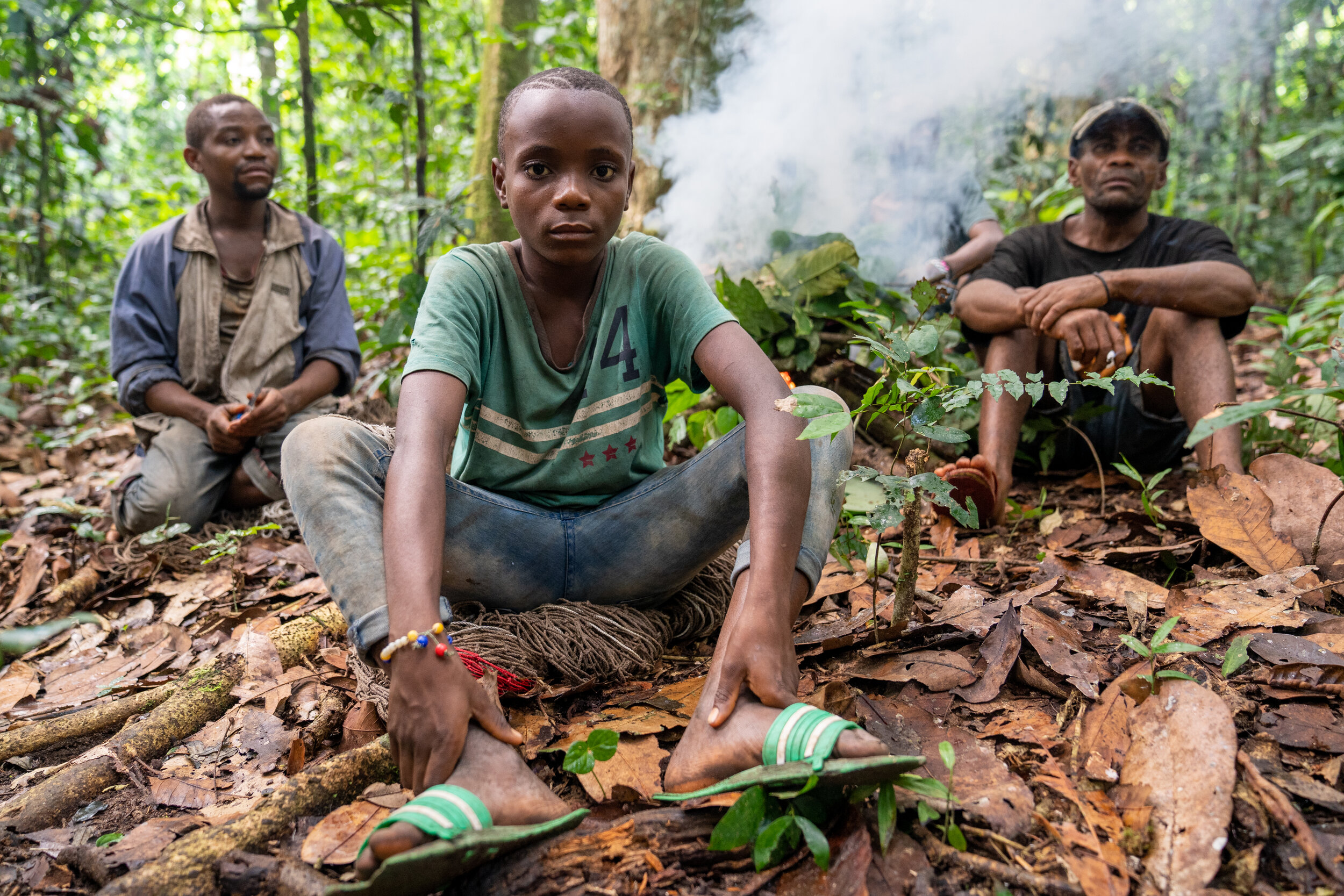
Fire Blessings
Ituri, Democratic Republic of the Congo. June 2021.
Before they set off on their hunt, they will set a fire asking their ancestors for both a good hunt and protection. As they do this, they will burn leaves into ashes which they will spread onto their face to create a camouflage effect.
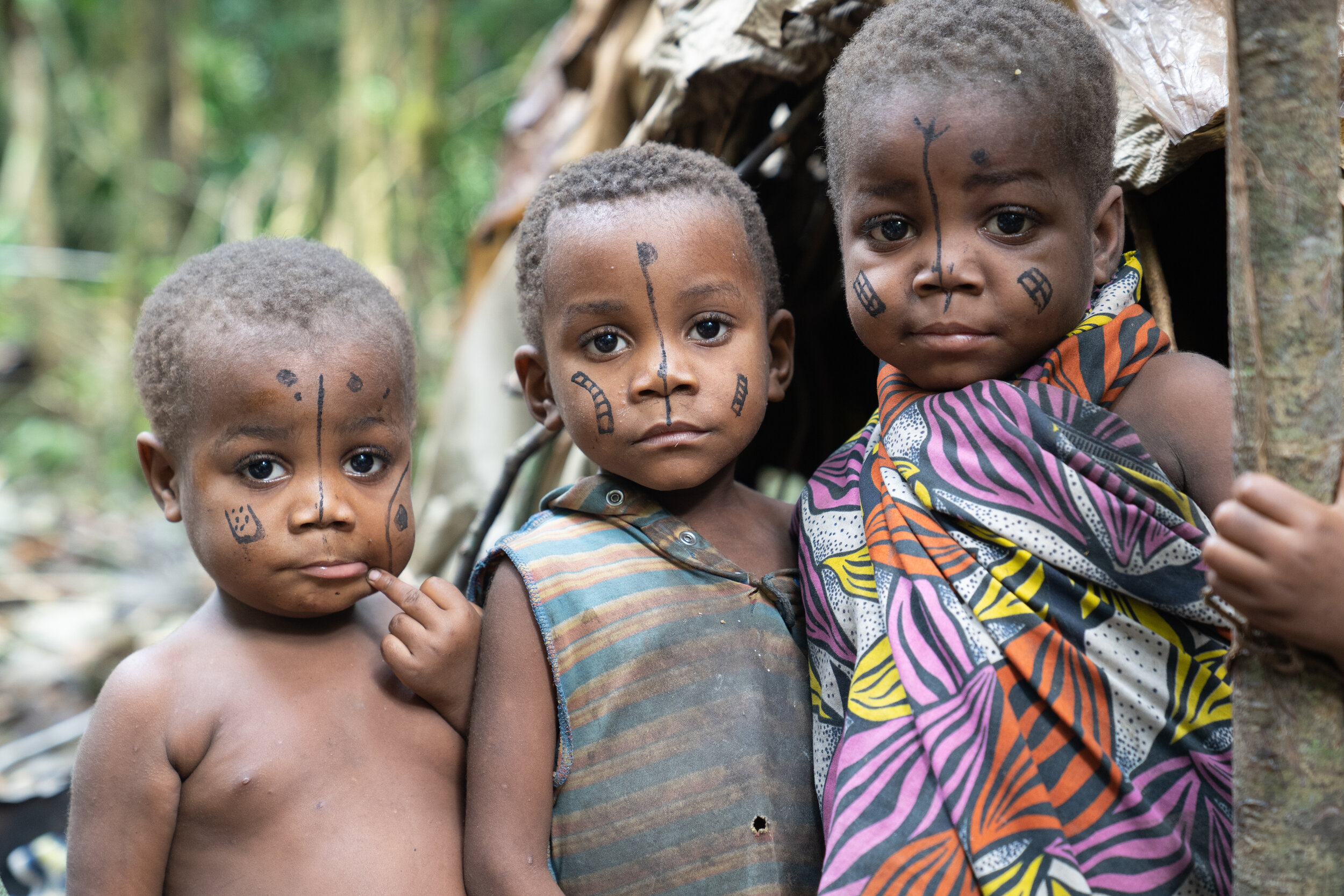
Painted Faces
Ituri, Democratic Republic of the Congo. June 2021.
The Mbuti love to paint especially on rainy days when it is more difficult for them to hunt and forage. It is considered a social activity. They will paint both themselves, their children, and on material made out of bark. Their paintings symbolize their perception of what they see and experience in the forest.
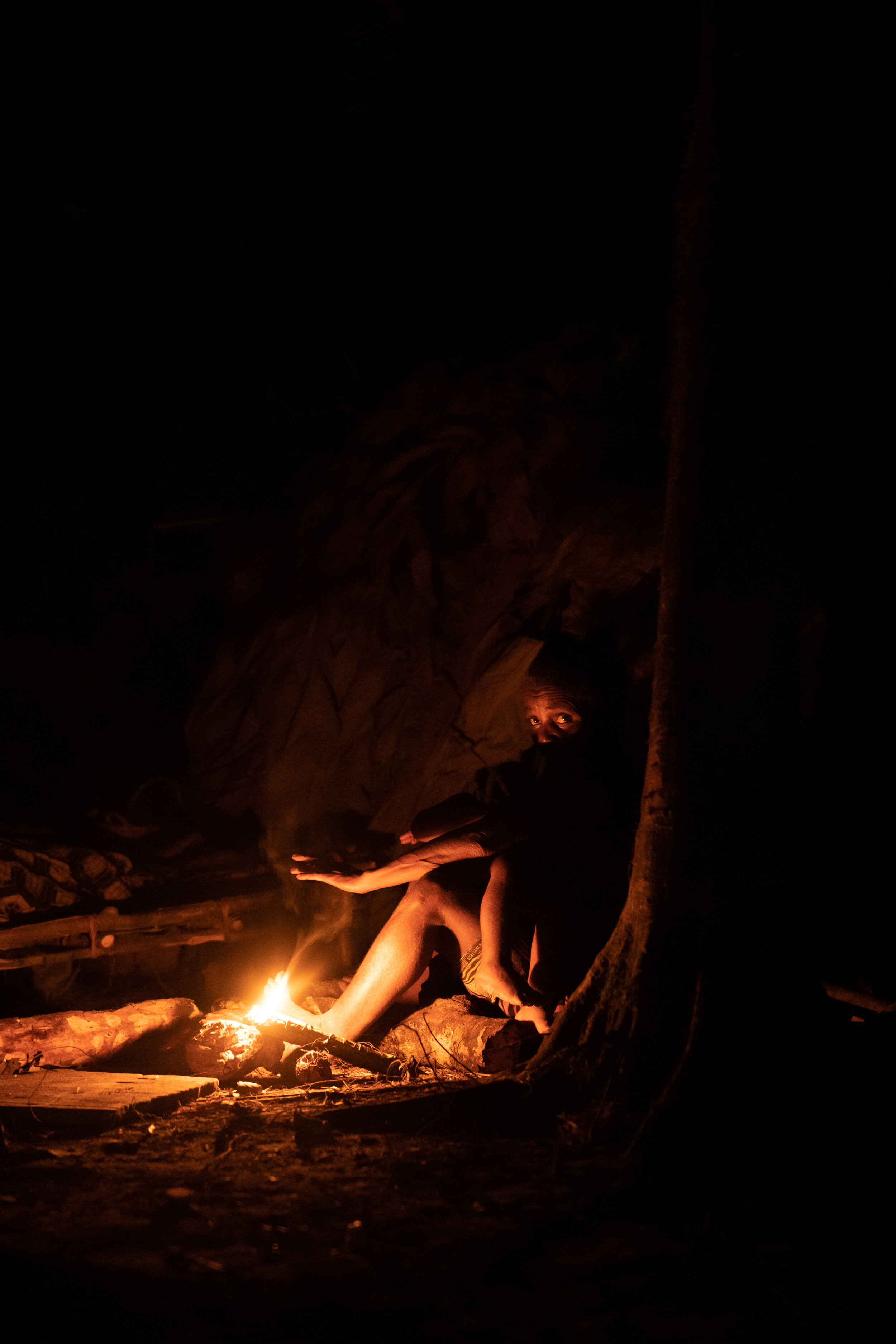
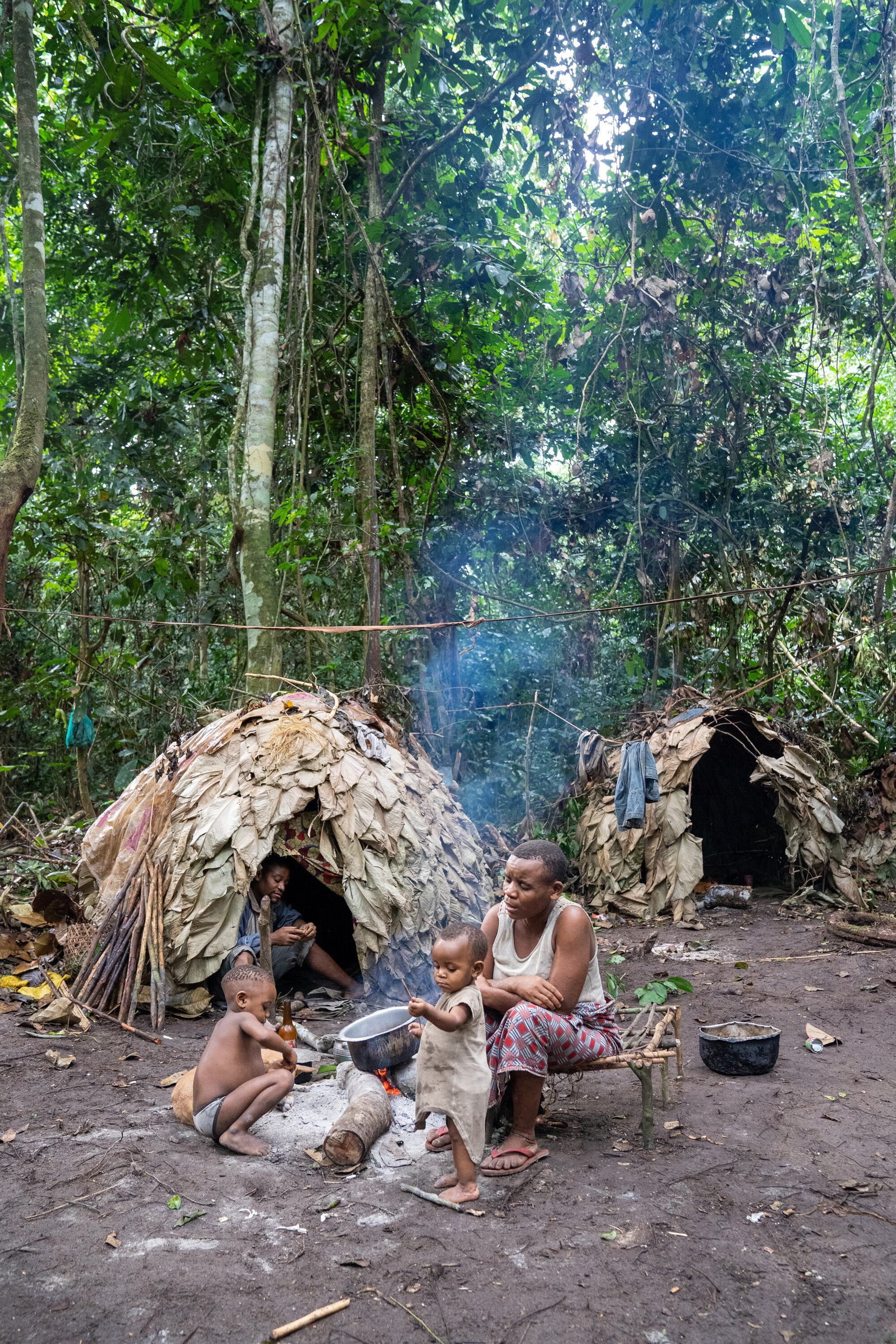
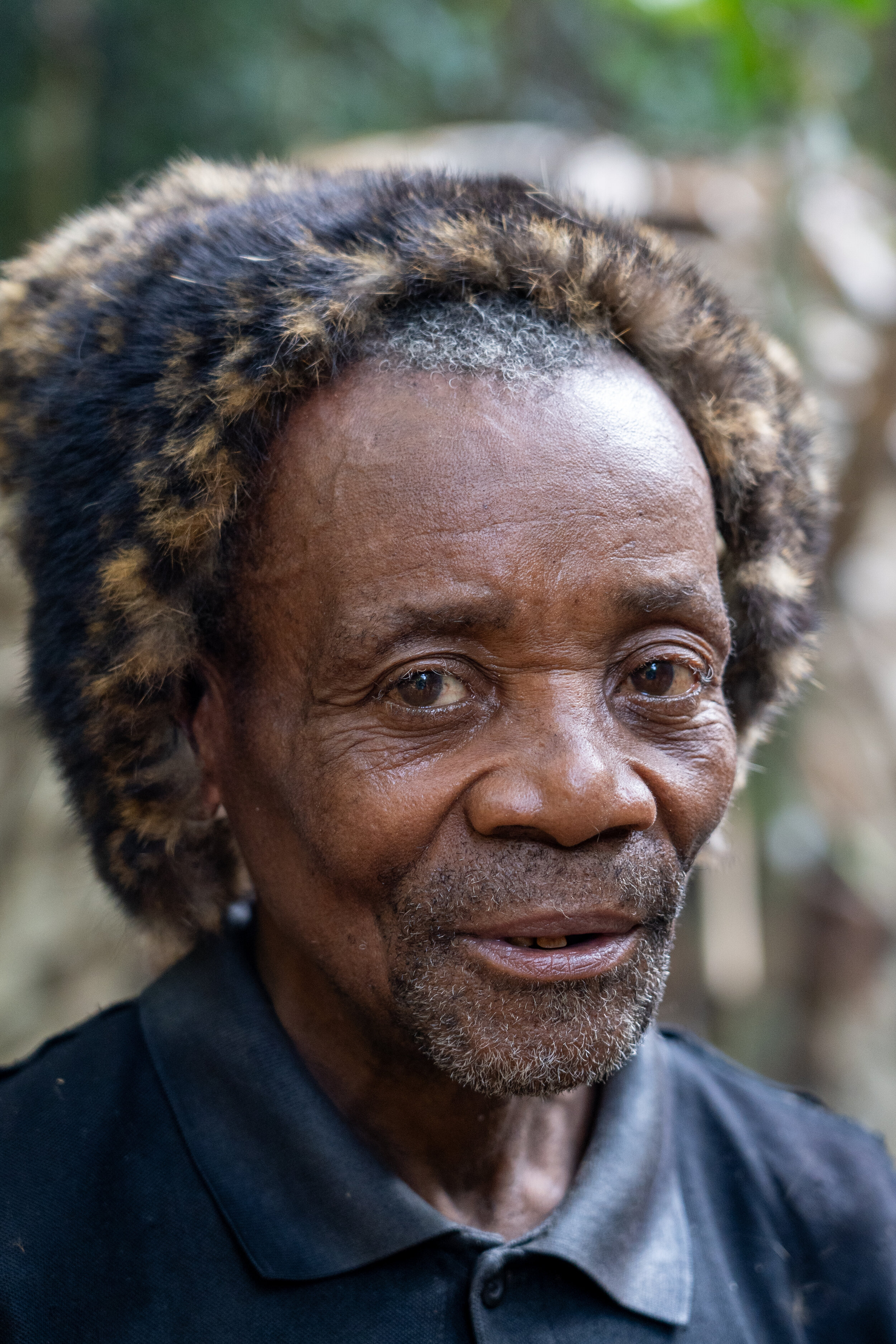
Life in the Rainforest
Ituri, Democratic Republic of the Congo. June 2021.
Different depictions of life around camp. Families settle around bonfires. Fire is a way of life. The Mbuti will never put out a fire until they move camps. Women and children congregate around their respective huts. The huts are built using sticks tied together with vines and covered with dried-up palm fronds, leaves, and grasses. Mangase wears a leopard head resembling one that former president Mobutu often wore.
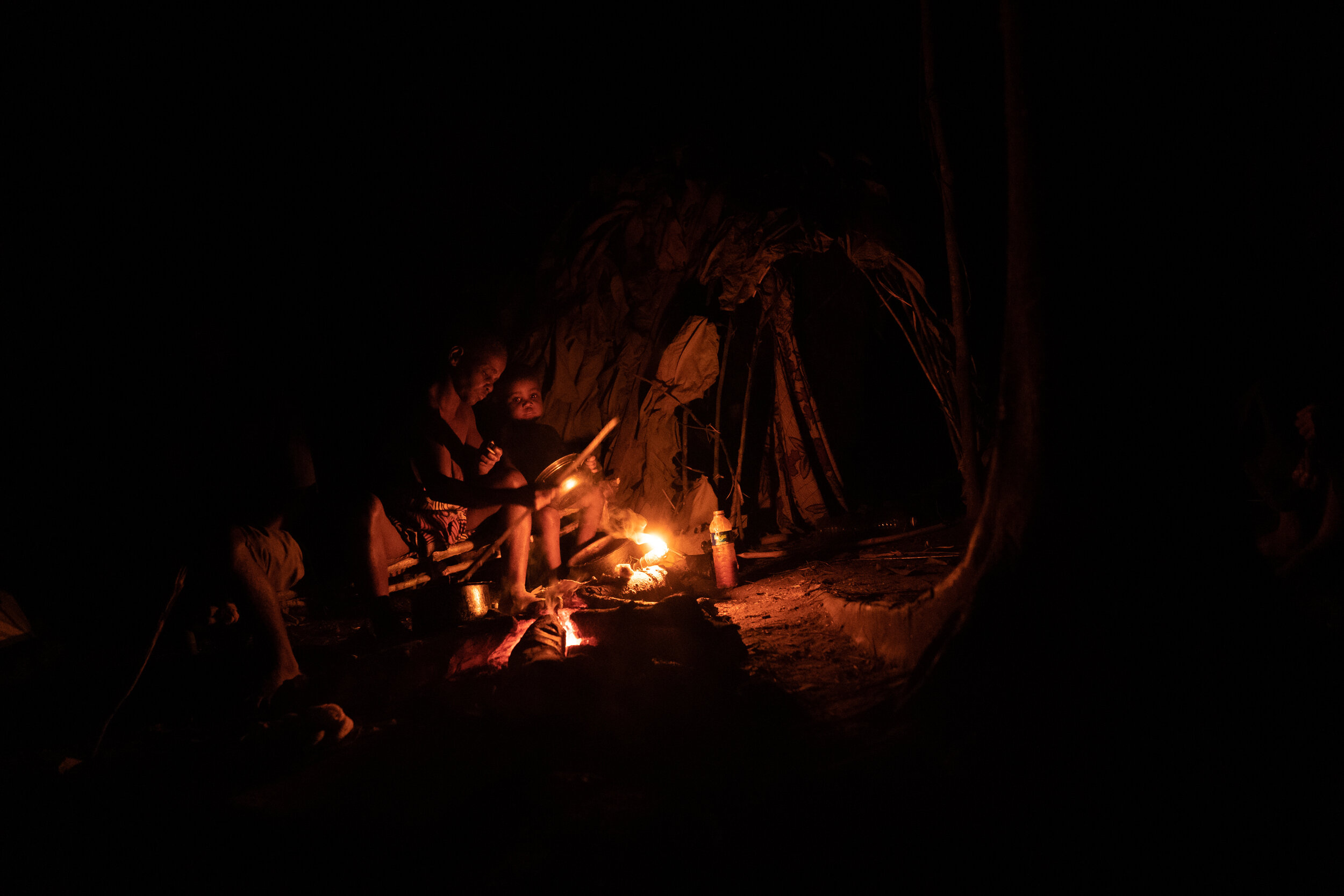
Fire By Night
Ituri, Democratic Republic of the Congo. June 2021.
Though there is a general bonfire at the centre of the camp, each family builds a small bonfire just outside of or inside their dome tent. The fire keeps them warm during cooler nights but also cooks their food - mostly beans, peanut greens, and with our visit, rice.
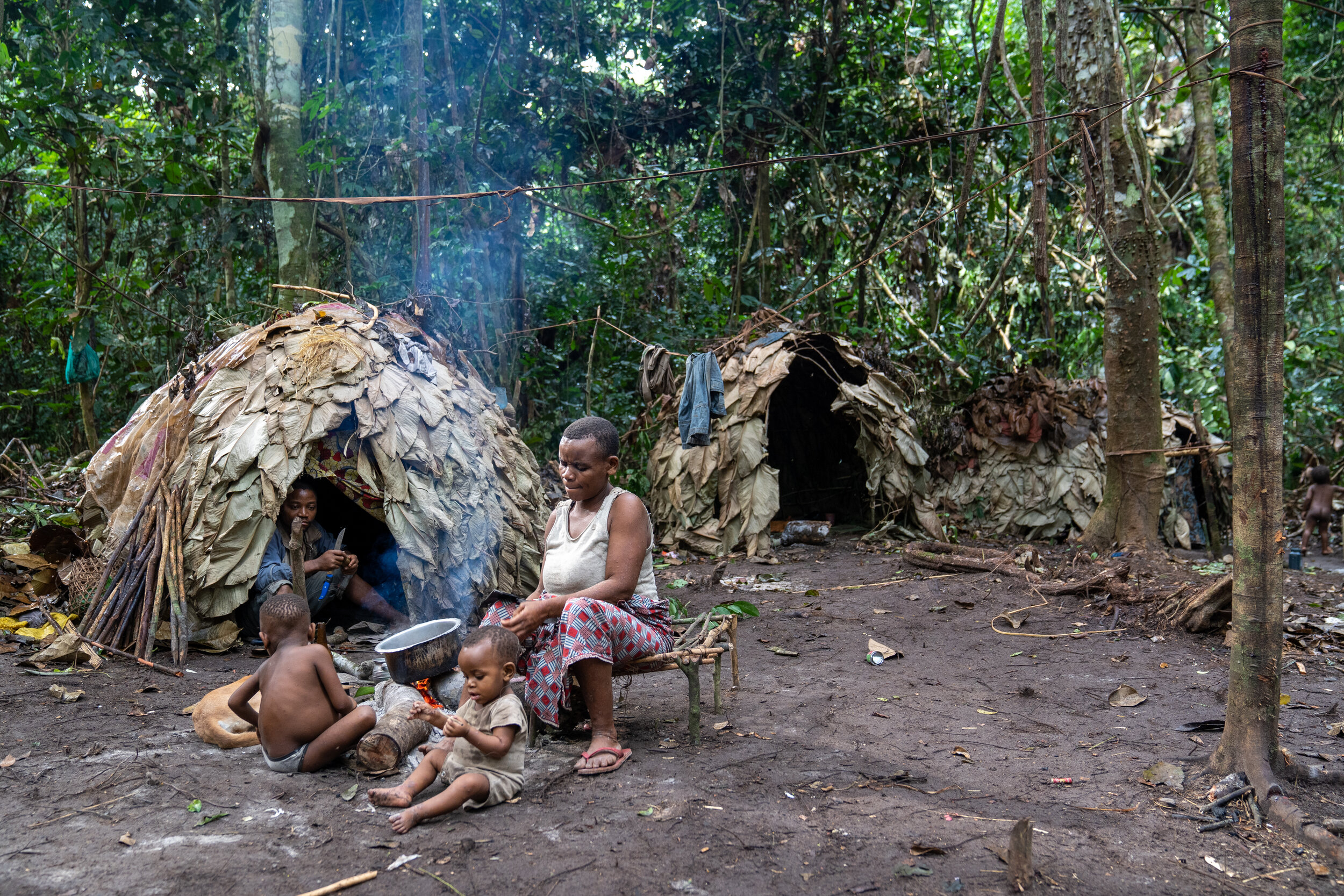
Family Mornings
Ituri, Democratic Republic of the Congo. June 2021.
Women and children congregate around their respective huts. The huts are built using sticks tied together with vines and covered with dried-up palm fronds, leaves, and grasses.
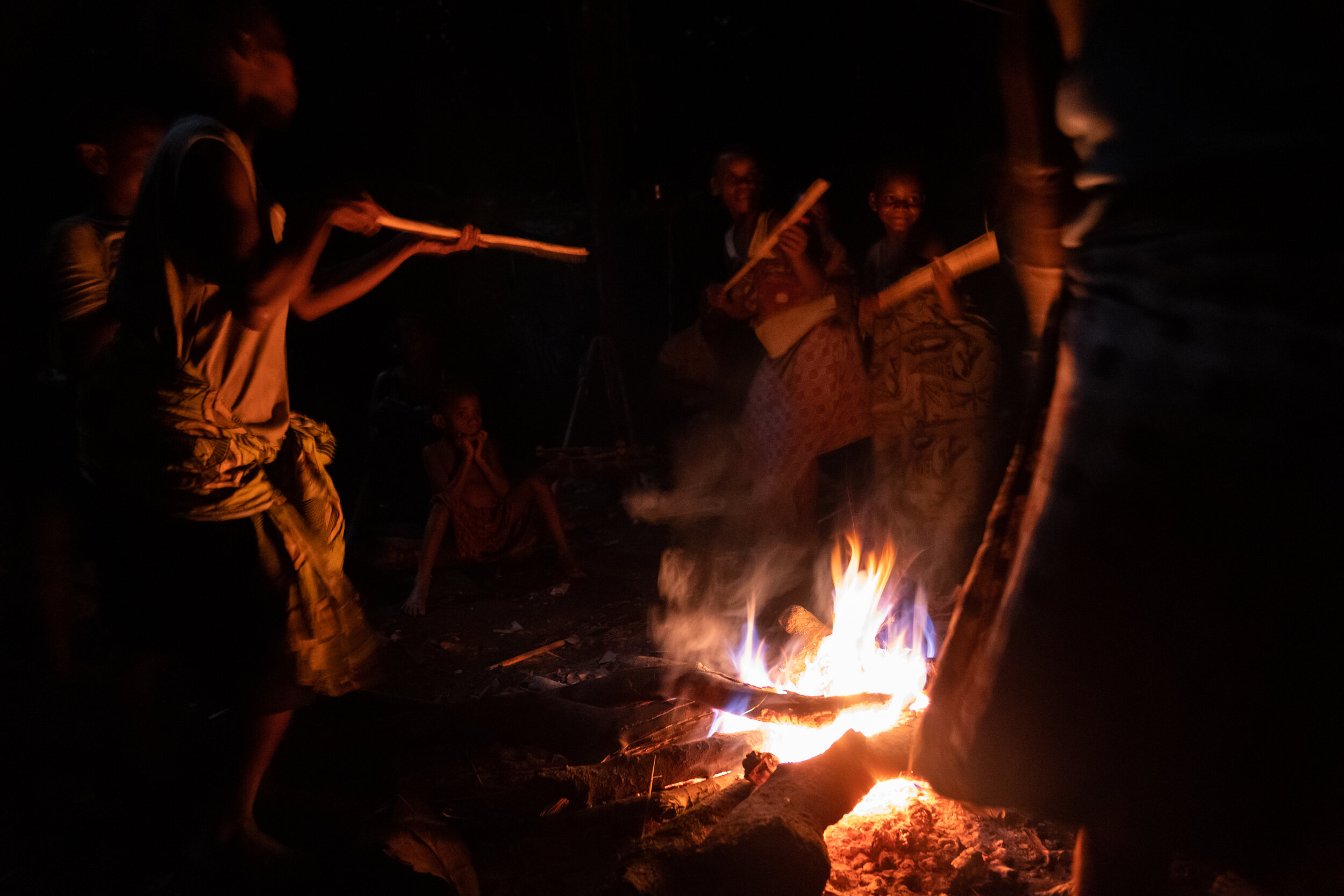
A Dance Around the Fire
Ituri, Democratic Republic of the Congo. June 2021.
The Mbuti sing and dance every night unless it rains. Their song and dance reflect their life stories and experiences. Here, they point sticks like guns reflecting rebels attacking and chasing them through the forest. Mbuti Pygmies have historically been targets of persecution by rebel forces and general Congolese society.
